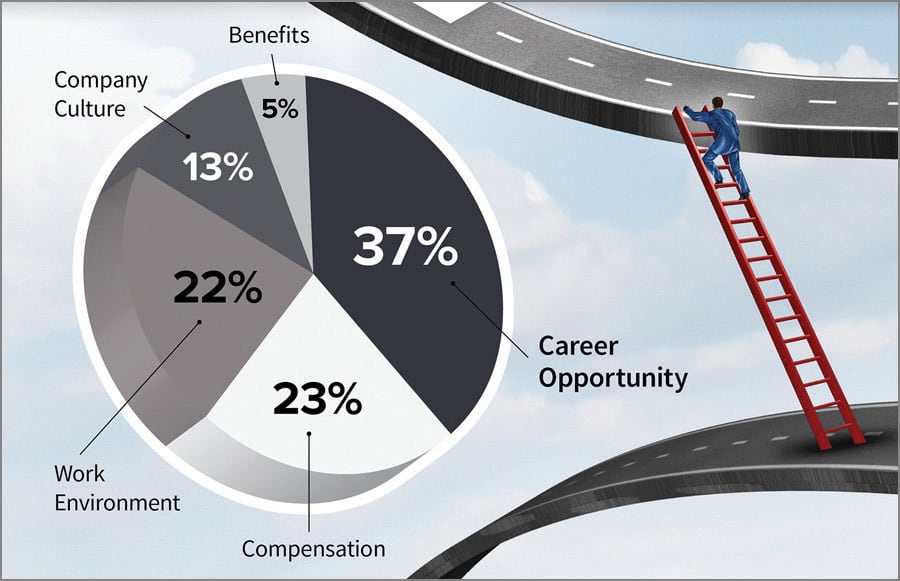Next Generation CEO Linda Davis talks to Niamh Mac Sweeney about employers, employees, the jobs market and the economy at large.
Q: How is the jobs market and the recruitment industry performing in Ireland at present?
The jobs market in Ireland has really heated up in the last six to eight months. Companies are looking at good, strong growth plans and this is having a knock-on effect on the jobs market.
Ireland has also played a great role in attracting top organisations to set up international headquarters here and that has created a significant talent attraction from across the wider European Union.
As a result of this growth, recruitment has also experienced a positive knock-on effect and we have seen the number of live vacancies grow incrementally week-on-week. It is a very buoyant market out there at present and is showing real signs of growth.
Q: What changes and challenges have you seen for both employers and employees?
The candidate market has become more sophisticated and the use of new technology gives the candidates greater transparency to the company. This means that the organisation looking to attract talent needs to be very transparent and offer the potential employee an insight into the organisation and the values of the business.
Candidates have become very self-aware and need to understand what the organisation can offer them from a learning and development perspective, what the values of the business are, and how those values marry with the candidates’ needs.
The employer value proposition (EVP) has become very relevant in the past 12 months, and the onus is on the company to be able to share a strong EVP in order to attract the right talent.
Other major challenges are that with the emergence of new technology, traditional job families are migrating and new job families are being created. This has posed a challenge as the skillset for the emerging job families are not readily available and it involves the candidate to upskill to stay current with the required skillset that employers are looking for.
Q: How has Next Generation been affected and what actions have been taken?
The effect for Next Generation has been a very positive one, whereby the company has been propelled into growth mode to ensure that we are servicing the client base at present. Upskilling at consultant level in our business has been key, with the evolution of the job families and ensuring that we can maintain a consistent pipeline of relevant candidates for the employment market. All told, it is having a very positive effect on the business.
Q: Has the economic recovery had an impact on the jobs market and recruitment industry?
With all recoveries there has been significant increase in the demand of candidates, with particular emphasis on the technical side of recruitment. One of the key drivers behind this growth is the development and expansion of technology companies in Ireland.
This has left a tight talent market in these areas. However, Ireland is a very attractive country for candidates to emigrate to and we are starting to see the influx of new talent from other countries.
The challenge for the recruitment sector in this is that we must become global headhunters and source talent from all over the globe to deliver into the domestic market. The role in recruitment has shifted from a sales role to a very strong dual role of sales and marketing.
Q: What are the experiences of multinationals in relation to talent and skillsets?
Ireland is now really seen as a gateway to Europe and can offer a multinational many benefits. It is also a very attractive country for candidates to come and reside in, the infrastructure is strong, and Ireland has become known as mini Silicon Valley as it is one of the only places in the world where you can walk to nearly all companies that have emanated out of the valley.
Companies that have a very strong EVP are succeeding above those that do not
From a candidate-attraction perspective, Ireland is seen as a tech hub and is the home to more budding entrepreneurs than ever before. The enablers for new companies to start-up and grow are significantly easier than a lot of European countries and the ability to attract domestic and foreign talent is significantly easier.

Next Generation EVP survey
Q: Are corporations reporting skills gaps? And if so, are they being addressed?
Yes there are skills gaps, however, my personal take on this is that they are more centred around the fact that job families are evolving and it is in that evolution where the gaps are identified.
To give you a semblance of this, data science is a brand new job family and is really only emerging, and in that emergence is forming its job family. There is bound to be a significant skills shortage here. Also, with the rate of development in IT, new skills are required all the time and this again will show a skills gap until the candidate base catches up with the emerging technology.
In the wider picture, Ireland is doing a significant push on STEM to drive our up-and-coming candidate market to ensure that these gaps are closed quicker.
Q: How competitive is the jobs market and what are employers doing to attract and retain talent?
The jobs market is very competitive. The key attraction point for candidates is getting insight into the employer’s employment value proposition. This is a culmination of the culture of the organisation, strategy of the organisation, training available to the prospective employee, remuneration, vision and leadership.
Companies that have a very strong EVP are succeeding above those that do not. And this is really key for the attraction of top talent. Attention is also being placed on ways of working efficiently, and on flexibility within an individual’s working day – so that both the employee and employer get the most out of each other.
Q: How does Next Generation differ from the competition?
Quality of service and the experience our clients and candidate get sets us apart from the competition. We put a huge emphasis on training all of our consultants. And at the heart of our business is our motto: ‘Unleash your success’. That applies to every facet of our organisation from our staff to our clients and to our candidates – so right across the board.
Q: What are considered the best companies in Ireland to work for and what do you attribute this to?
The best companies are those that have agile strategies that will see the business grow over the next 12 – 50 month period.
A strong pipeline of goals that the company is aiming to achieve is also important as it shows a prospective employee that they can have a clear line of sight as to what they will be a part of in the organisation, whether that is breaking new markets, introducing new technologies or developing new products.
Q: What advice do you have for those looking for employment?
It doesn’t really matter what the jobs market looks like; the key for me for anybody trying to secure that top job is about what effort he/she puts into securing that role. That starts with the candidate’s skill base: they need to be relevant, up to date, and prove that they can add value to the prospective company.
Ireland is doing a significant push on STEM to drive our up-and-coming candidate market to ensure that these gaps are closed quicker
It is also hugely important in certain sectors, (for example in tech or data) where you contribute outside of work to their tech/data communities, showing that they have a real passion for what you do.
Candidates should also do significant pre-work on understanding who they are, how to communicate their skill base and get across their passion for a role and a company. Know yourself, where you want to go, apply your passion and the right opportunities will always come your way.
Q: What are employers looking for in prospective employees?
Passion, attitude and ability to do the job. Like all relationships they have to be evenly matched. The candidate must bring all of these in order to get the most out of themselves and for the company to benefit as well.
Q: What advice do you have for employers and employees?
What you put in is what you get out; that applies to both clients and candidates. If you want to attract top talent, give them what they want. If you want to attract the top job, develop yourself so that you are the most desirable on the market.







